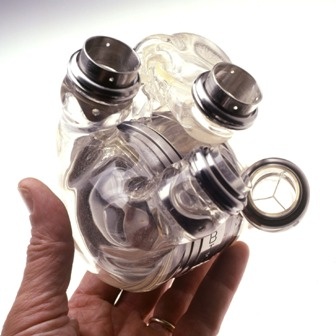
Your heart is the motor inside your body that continues the lot running. Fundamentally, the heart is a muscular pump that upholds oxygen and blood dissemination by way of your lungs and form. In a day, your heart pumps around 2,000 gallons of blood. Like any motor, if the heart is not well-enjoyed consideration of it can reprieve down and pump less productively, a condition called heart disappointment.
Up to this point, the sole choice for numerous severe heart flop patients has been heart transplants. Notwithstanding, there are just marginally more than 2,000 heart transplants performed in the United States every twelve-months, indicating that several many individuals burn out sitting tight for a benefactor heart. On July 2, 2001, heart disappointment patients were given new trust as surgeons at Jewish Hospital in Louisville, Kentucky, performed the first manufactured heart transplant in practically two decades. The Abio Cor Implantable Replacement Heart is the first totally independent artificial heart and is wanted to anyhow twofold the future of heart patients.
In this article, you will get an in-profundity check out how this new artificial heart works, how its embedded into a patient’s midsection and who may be a petitioner for getting one of the aforementioned mechanical hearts. We will likewise stand up in comparison the AbioCor heart to the manufactured hearts that have missed the mark in the past.
The first AbioCor device has now been implanted in a patient. The patient,a man dying of heart failure, received the first self-contained, implantable artificial heart.
The new artificial heart, the AbioCor, is manufactured by Abiomed, Inc., based in Danvers, MA. The company has now received permission from the U.S. Food and Drug Administration to proceed with human investigation of the AbioCor. While artificial hearts have been implanted in humans before, previous artificial hearts were primitive compared to the AbioCor. The older mechanical hearts required the patient to be attached to a large console (via tubes and electrical power lines extending through the patient’s skin,)
and essentially required that the patient be bedridden.
The “best case” for using these previous artificial hearts was as a means of keeping patients alive until a heart transplant was available.
With the AbioCor, on the other hand, the ultimate goal is to develop a more-or-less permanent replacement for the heart. The device is completely self-contained within the body, and there are no tubes or lines protruding through the skin. Patients will not be tied to a console, and should be able to carry out routine ambulatory functions. Power is supplied to AbioCor by an external battery pack worn on the belt.
A coil attached to the battery pack sends power through the skin to an implanted coil, which then transmits the energy to the AbioCor. (The AbioCor also contains an internal, continually charging short-term battery, that can keep the device pumping for up to 30 minutes without the external battery pack.) Similar to a pacemaker, the AbioCor contains an activity sensor that can tell when the patient is active, and can automatically increase the rate of pumping during exertion.
The AbioCor weighs about 3 pounds, and the external battery pack weighs 4 pounds.
Read more:
http://science.howstuffworks.com/innovation/everyday-innovations/artificial-heart.htm
http://www.abiomed.com/products/heart-replacement/
https://www.facebook.com/BestMedicalFacts
http://heartdisease.about.com/cs/heartfailure/a/abiocor.htm
